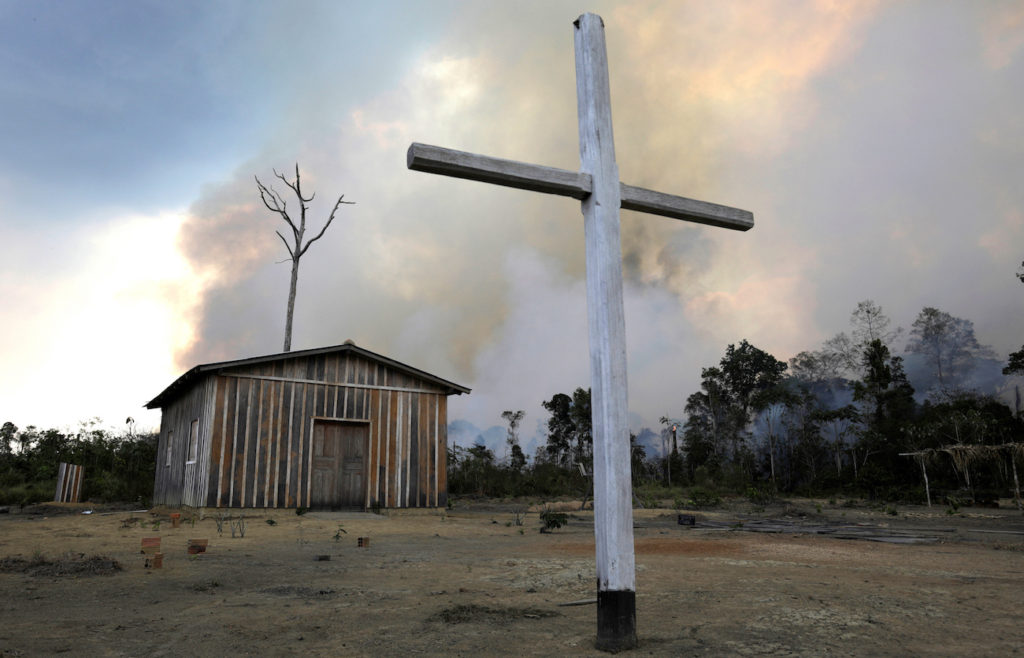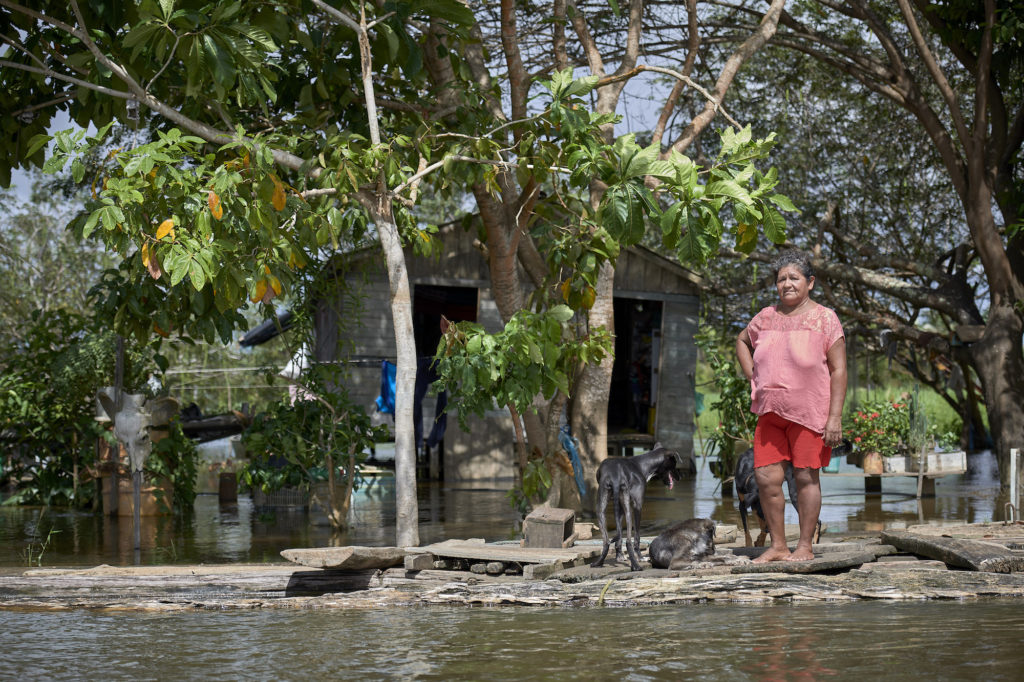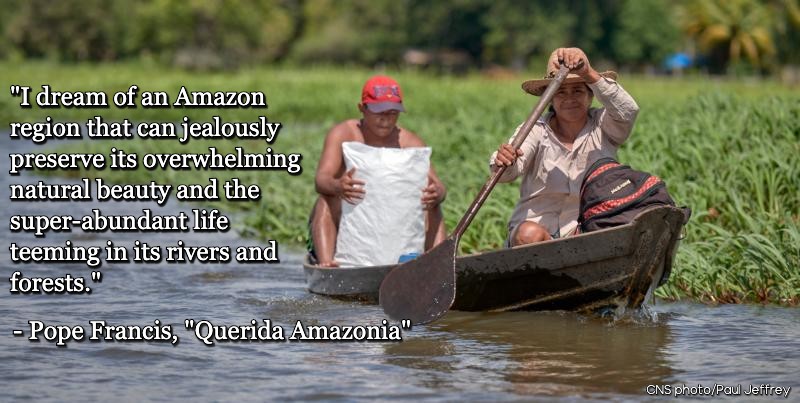
VATICAN CITY (CNS) — Like so many of Pope Francis’ teachings and major documents, his apostolic exhortation on the Amazon is built on a call for conversion — a new way of seeing, thinking and doing.
“We need to feel outrage,” he wrote, underlining his concern that the world has become too indifferent, too numb or too much in denial about what is happening to the environment, the world and the people in it.
In his apostolic exhortation “Querida Amazonia (Beloved Amazonia),” Pope Francis urged people to recognize how much injustice and cruelty has taken place in the Amazon region, and he pleaded for attention to “current forms of human exploitation, abuse and killing.”
Following in the footsteps of “Laudato Si’,” his 2015 encyclical on the environment, the pope said people must approach the Amazon aware that “everything is connected,” which means that care for people and care for ecosystems are inseparable.
In the document, released Feb. 12, he called on political leaders and governments in the Amazon region to take more seriously their responsibility to preserve the environment and resources and to protect the rights and cultures of all its citizens.

An unusual suggestion Pope Francis made in the document was that people turn to poetry and delve into Amazonian stories to discover how unique the region is and to feel more deeply its importance.
“Those poets, contemplatives and prophets help free us from the technocratic and consumerist paradigm that destroys nature and robs us of a truly dignified existence,” he said.
Poetry helps give voice to beauty and to pain, he said, and it should help wake people up to what is under threat.

Reflection is needed to bring about the true conversion needed to hear and respond to the cry of the region’s people and the cry of the earth, he said. “From the original peoples, we can learn to contemplate the Amazon region and not simply analyze it, and thus appreciate this precious mystery that transcends us.”
“We can love it, not simply use it, with the result that love can awaken a deep and sincere interest,” he wrote. “Even more, we can feel intimately a part of it and not only defend it; then the Amazon region will once more become like a mother to us.”
The key to all of Pope Francis’ appeals in the document is to not “look at the world from without but from within, conscious of the bonds with which the Father has linked us to all beings.”
“A sound and sustainable ecology, one capable of bringing about change, will not develop unless people are changed, unless they are encouraged to opt for another style of life, one less greedy and more serene, more respectful and less anxious, more fraternal,” he said.
— By Cindy Wooden, Catholic News Service.






